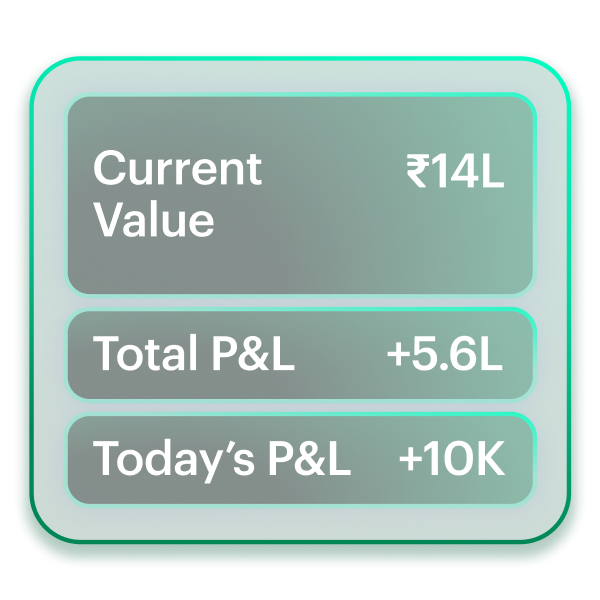Last Updated on May 24, 2022 by
Credit cards allow you to do every type of transaction on credit. You can shop, pay utility bills, spend on travel bookings, pay medical bills, and buy goods and services using your credit card. However, when it comes to investing, credit cards take a back seat.
Table of Contents
Credit cards for investments
Most forms of investments do not allow credit card transactions. However, some do. For instance, you can invest in the National Pension Scheme (NPS) using your credit card. Similarly, you can buy gold and pay for the same through a credit card.
However, investments in stocks and mutual funds do not allow credit transactions. As such, if you want to invest in mutual funds, either in a lump sum or through SIPs, you cannot use your credit card.
How to invest in mutual funds?
To invest in mutual funds, you can use the following modes:
- Cash
- Cheque
- Demand draft
- Mobile wallets
- UPI
- Debit card
- NEFT or RTGS
- IMPS
- Net banking
While lump-sum investment can be made using any of the aforementioned modes, when it comes to SIPs, the process is a little different. Let’s understand.
SIP – the concept
Systematic Investment Plans, or SIPs, are a mode of investing in mutual fund schemes. Under SIPs, you choose to invest a fixed amount at regular intervals for as long as you want. You can start a SIP with as little as Rs 500 per month.
How does SIP investment work?
When you start a SIP, you usually have to place an auto-debit facility on your bank account. The mutual fund company becomes a biller, and you automate the investment by adding the biller to your account. Thereafter, every time the SIP instalment falls due, the bank automatically debits your account for the SIP amount and pays it to the mutual fund company. The company then invests in the amount in your folio, and your SIP continues.
Why credit cards are not allowed for SIP investments?
Credit cards are a type of credit facility. In other words, they are a form of pre-approved loans that allow you to pay for goods and services. Mutual fund SIPs are a form of investment wherein the amount is invested from the savings that you have. Credit cards are not savings. As such, you cannot use them to make investments.
Another reason why credit cards are not accepted for mutual fund SIP transactions is because SIPs are automated through your bank accounts. When you redeem, the fund is transferred back to the account from where you are investing. Your credit card account is not your bank account. You might link your credit card account to your bank account for automating bill payments, but these accounts are separate. As such, when you redeem your SIP investment, the money will not be transferred to your credit card account but to your bank account. Thus, you cannot use credit cards for SIP investments.
Indirect ways of using credit cards for SIP investments
While you cannot directly use your credit card for SIP investments, there are indirect ways of investing in SIPs using your credit card. Have a look:
- You can use your credit card to load money into your mobile wallet. Thereafter, you can use the mobile wallet to invest in SIPs
- Alternatively, you can transfer the funds from your mobile wallet to your bank account and then pay for SIPs
However, credit cards come with interest charges. If you load money in your mobile wallet using your credit card, you would have to pay for the same in your credit card bill. If you delay making the payment or pay only the minimum amount due, you would incur considerable interest costs. Your credit score would also be hampered.
In the second instance, transferring funds from your mobile wallet to your bank account might incur charges levied by the wallet. This would, again, include an additional cost of investing in SIPs through your credit card.
Both the aforementioned scenarios are expensive alternatives to investing in SIPs. It is, thus, better to avoid these routes and opt for a simpler and more direct approach to SIP investing through your bank account.
The bottom line
It is tempting to use your credit card for mutual fund SIPs, albeit indirectly because you can step up the card usage and earn more reward points. However, it is a risky and complicated mode of investing in SIPs.
So, when it comes to SIP investments, go the old-fashioned way. Link your SIP folio with your active bank account and automate your investments. This would ensure regular investments so that you can steadily build up a considerable corpus with time, benefit from rupee cost averaging and invest in a disciplined manner.
- Top Large Cap Funds 2025: Discover Blue Chip Performers - Mar 27, 2025
- Gilt Funds in India: Features, Meaning, and Advantages - Mar 13, 2025
- Best Index Funds in India 2025: Top Performing Mutual Funds - Mar 13, 2025




